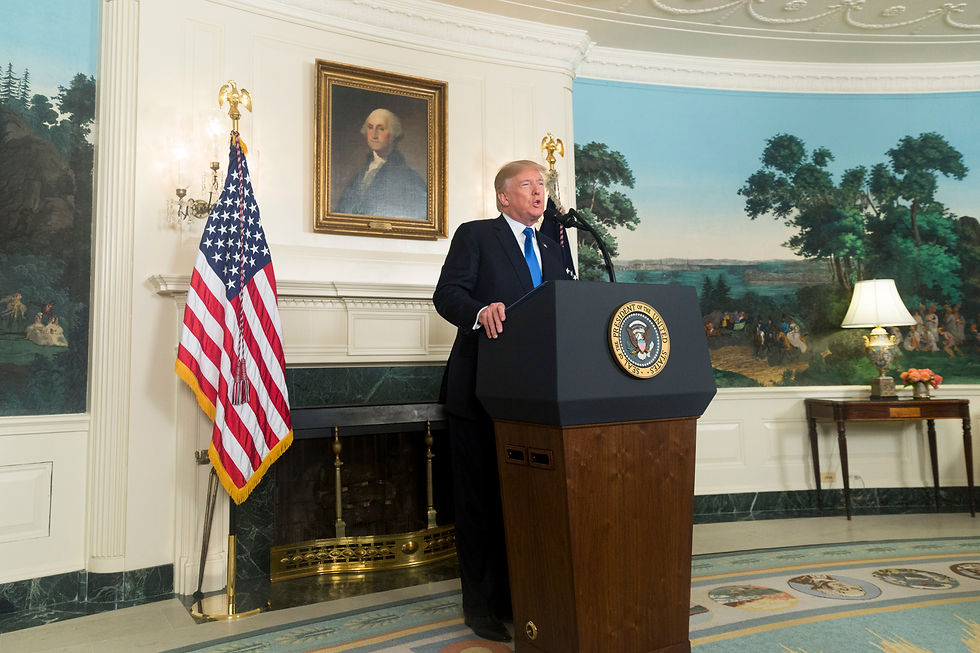Iran Nuclear Deal and the Decline of Diplomacy
- bostonpoliticalrev
- May 2, 2018
- 3 min read

Ever since the toppling of Reza Shah’s US-backed regime in the Iranian Revolution in 1979, the United States has paid particular attention to Iranian politics and the potential acquisition of nuclear power. In an attempt to stifle Iran’s political and military power, the United States—along with the UK, Germany, France, Russia, and China—brokered a deal in 2015 with Iran which halted its nuclear development and stockpiling of uranium. This deal requires regular monitoring of Iranian nuclear plants by the IAEA, the “global nuclear watchdog.” Furthermore, previous sanctions which crippled Iran’s economy and prevented engagement with the rest of the world would be lifted under the deal. Though this deal is far from perfect from both the American and Iranian perspectives, the Obama administration viewed the Iranian Nuclear Deal as a step forward in preventing Iran from gaining military strength and dominance in the volatile Middle East.
Donald Trump, in keeping with his tradition of opposing any potential progress created by the Obama administration, rebuked the Iran deal calling “it insane. Ridiculous. It should have never been made.” Though the deal is imperfect in the eyes of Trump, completely scrapping it would inevitably allow Iran to develop nuclear armaments immediately, rather than 15 years from now as the deal originally states. Even French President and so-called “Trump whisperer” believes in improving upon the deal as it stands, rather than tossing it completely. Recently, Israeli Prime Minister Benjamin Netanyahu made false, inflammatory remarks regarding Iranian Nuclear development. He alleged that his intelligence agency acquired records of Iranian nuclear compounds involved in creating nuclear weapons, yet this intelligence is nothing but old news, From the 1980s until 2003, Iran launched the Amad project aimed at researching and developing nuclear weapons, yet amid IAEA investigations, the project was shut down and no further development continued. Under the nuclear agreement reached in 2015, Iran definitively shut down nuclear projects. Benjamin Netanyahu, a clear enemy of the Iranian government, is simply fueling the demonization narrative surrounding Iran rather than attempting his hand at peaceful, diplomatic diplomacy that would ease tensions and fear of conflict.
The Iran Nuclear deal represents a step towards diplomacy and compromise between Western nations and Iran—this is an unquestionable fact. However, the fear and demonization of the Iranian government by Western powers must be called into question. America’s animosity towards Iran occurred when the Iranian people en masse demonstrated against the United States’ puppet regime that had been governing Iran in the decades leading up to the 1979 revolution. Iranians, like Afghans and Iraqis in the years since, grew tired of US imposed governance in their country. We currently oppose Iranian development of nuclear powers because they refused to succumb to US demands. Although no nation on Earth should legally possess nuclear weapons—the US included—the hypocrisy in allowing nations such as Israel and Pakistan develop nuclear arms simply because their policies are US approved is unbearable. Israel and Pakistan have, respectively, oppressed and attacked their own people and funded terrorist organizations in neighboring countries for their own political pursuits. The hypocrisy does not end here; last year, the United Nations launched talks to legally ban nuclear weapons on the global stage, yet the US, among other western nations, led a boycott against such talks. As self-proclaimed harbingers of world peace, the United States cannot fathom a world in which they do not possess nuclear power, but they demand a world in which other nations endlessly supplicate to the US government for the so-called pursuit of peace.
